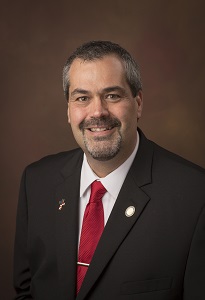GOVERNOR KELLY CABINET APPOINTMENTS
On day 37 of a 90-day session, Governor Kelly finally submitted four of her acting Cabinet secretaries for Senate confirmation. The Senate read in the Cabinet secretaries on Wednesday to send to committees for screening and consideration. Once committees have held hearings on the appointment, they will then be forwarded to the full Senate for a vote.
Current Appointments submitted include:
Commerce Secretary – David Toland
Transportation Secretary – Julie Lorenz
Secretary of Health and Environment – Lee Norman
Secretary of Revenue – Mark Burghart
SENATE BILL 22 PASSES THE HOUSE
On Friday, the Kansas House of Representatives passed Senate Bill 22 with a vote of 76-43. Senate Bill 22 originally passed the Senate and was created in response to federal tax reform. The legislation was created to return the unexpected windfall from the Trump tax cuts back to taxpayers while allowing Kansans to deduct interest on their mortgage, property taxes, and health care expenses through decoupling with federal law. The bill also provides Kansas businesses with the full benefits of federal tax breaks on foreign income, allowing Kansas to remain competitive with neighboring states who have already done this.
The House added two amendments to Senate Bill 22. They included a 1 percentage point reduction in the state’s 6.5 percent sales tax on food. The House also included an internet sales tax amendment that would require out-of-state online retailers to pay sales tax which they have not been required to do in the past.
The Senate will have the opportunity to concur with the House’s adjustments or engage in compromises during conference committees.
GOVERNOR KELLY SIGNS SENATE BILL 9 INTO LAW
On Friday morning, Governor Laura Kelly signed Senate Bill 9 into law. Senate Bill 9 allocates $115 million from the state general fund to the school group of the Kansas Public Retirement System (KPERS). The $115 million pays back a previously missed KPERS payment, bringing the funding ratio to the highest point it has been in 25 years. The school group of KPERS has had the lowest funding ratio, at 61.6 percent, well below the total KPERS funding ratio which is 68.4 percent. I was proud to have been a co-sponsor for this bill.
Senate Bill 9 passed both the Senate and House unanimously.
HEALTH EFFECTS OF E-CIGARETTE USE
Electronic cigarettes, commonly known as e-cigarettes, are battery-powered devices that provide nicotine and other additives to the user in the form of aerosol. This usage is referred as “vaping,” and entered the market in 2007.
A 2018 report by the National Academies of Science, Engineering, and Medicine (NASEM) concluded there is substantial evidence that e-cigarettes usage increases the risk of using conventional cigarettes among youth and young adults. Evidence has shown that most e-cigarette products contain and emit numerous potentially toxic substances and short-term exposure can cause health issues.
